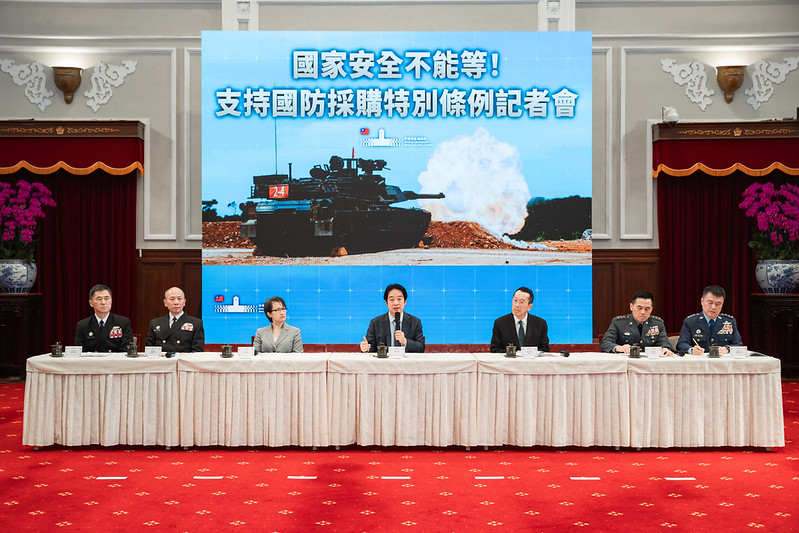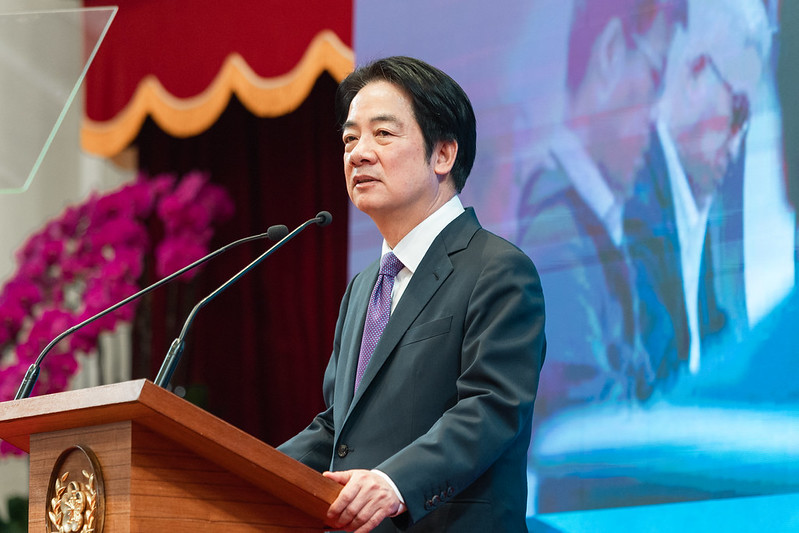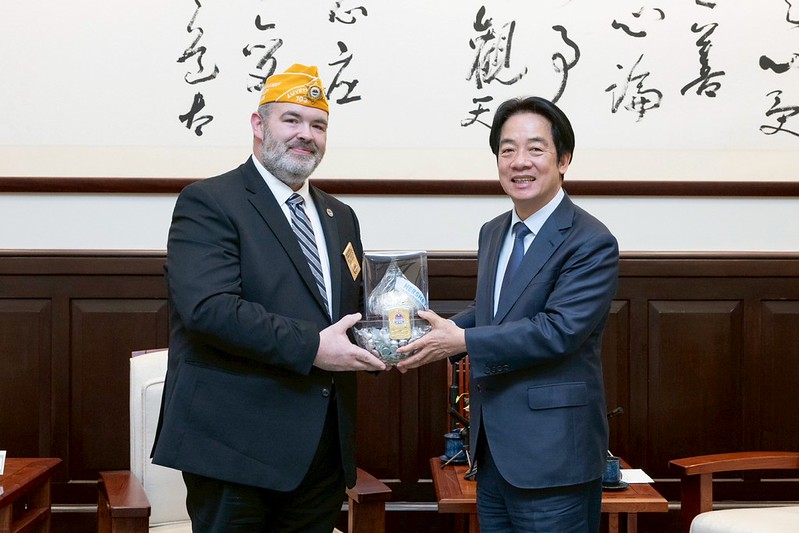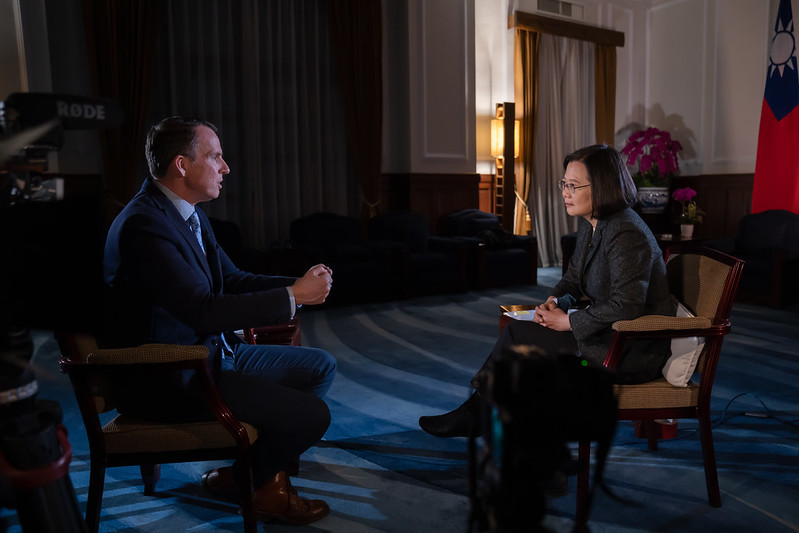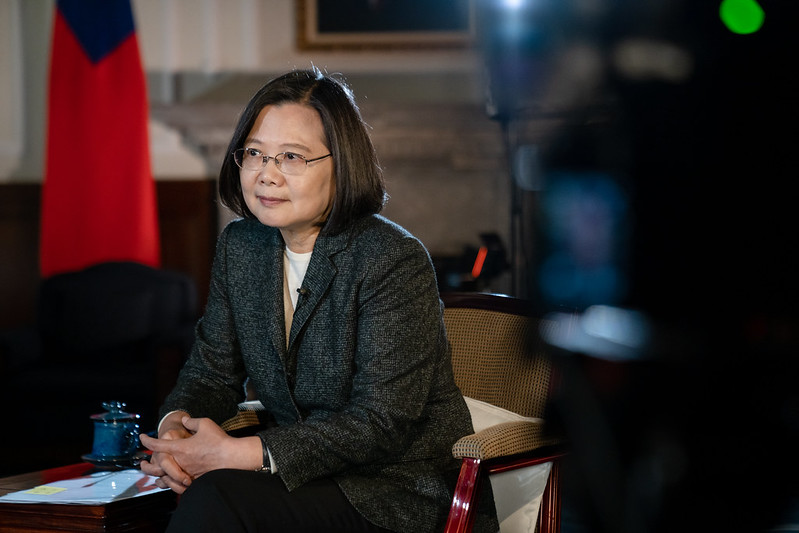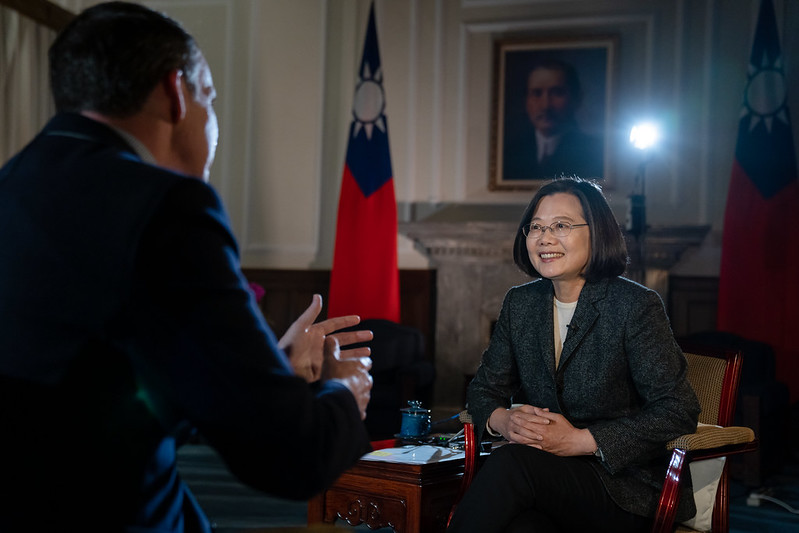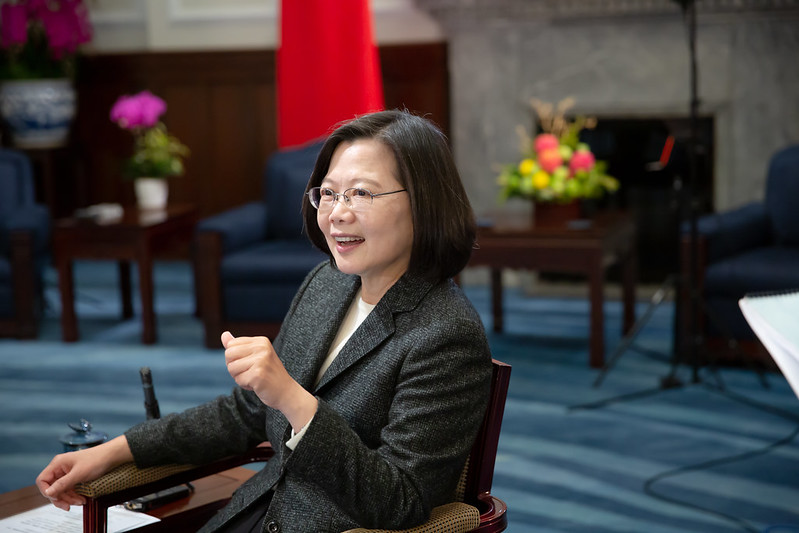News & activities
 News releases
News releases
President Tsai Ing-wen was interviewed by the British Broadcasting Corporation (BBC) on the afternoon of January 14, and she responded to questions regarding issues such as our presidential election, cross-strait relations, and national defense. The BBC released a portion of the interview on January 15 as follows:
Q: How do you expect Beijing to react to your victory?
A: They should engage in serious thought about the people's expectations as expressed by the election result. This is a very strong message from the people of Taiwan. They don't like the idea of being threatened all the time. We are a successful democracy and have a decent economy. We deserve respect from China.
Q: You spoke after the results about your hope that there could be a return to dialogue. What could you offer Beijing that might, in your view, open that door a little?
A: I think for the Chinese to sit down and think and also have this preparedness to face the reality. That is the key. If they're not prepared to face the reality, whatever we offer won't be satisfying to them.
Q: Why do you think China was such an issue for voters?
A: Because over the last more than three years, we have seen that China has been intensifying its threat. They have all sorts of actions, military exercises, and they have their military vessels or aircraft cruising around the island. So the intensity of the threat is increasing, and also with the things happening in Hong Kong, people get a real sense that this threat is real, and is getting more and more serious.
Q: Your predecessor, Ma Ying-jeou, was able to preserve Taiwanese democracy whilst building stronger ties with China economically and culturally, at a small price: the continued ambiguity over the status of this island. What's not to like about that approach?
A: The situation has changed. The ambiguity can no longer serve the purposes that it was intended to serve. So, we're facing a very different situation now.
Q: Is it the danger though, that without an expression of good faith on your side that, and this is what your critics say, you in a way are inviting China to react in the way that it is?
A: I have been rather reasonable in terms of managing our relations with China, and we have refrained from doing things that might be considered as being provocative to China. There is so much pressure here that we should go further. But, for more than three years, we have been telling China that maintaining the status quo remains our policy. I think that is a very friendly gesture to China.
Q: Are you in principle, at least, in favor of the idea of formal Taiwanese independence?
A: Well, the idea is that we don't have a need to declare ourselves an independent state. We are an independent country already and we call ourselves the Republic of China (Taiwan), and we do have a government and we have a military, and we have elections.
Q: You spoke about the rising threat from China. How serious in your view is the risk of war today?
A: You cannot exclude the possibility of a war at any time. But the thing is you have to get yourself prepared and develop the ability to defend yourself. But in addition to this military preparedness, more important is that you have to get international support for your cause. So, we have been adopting this attitude of non-provocation because we don't want to be the party provoking the other side and make the situation worse or give the other side the excuse to take whatever action they want to take. So, we have been pursuing this non-provocative style, and to a certain extent, we're rather mild in our response in our view toward their provocative actions.
Q: Do you believe you would be able to stand up to a military action?
A; I do think we have a pretty decent capability here and invading Taiwan or trying to invade Taiwan is something that is going to be very costly for China.
The BBC said that they will later release a more complete version of the report.

